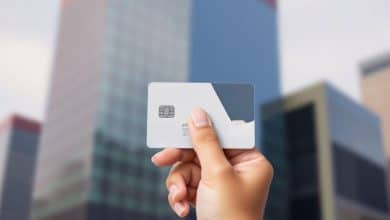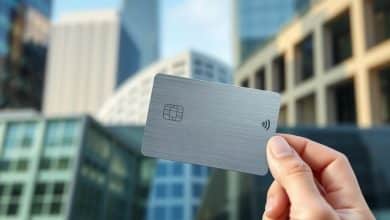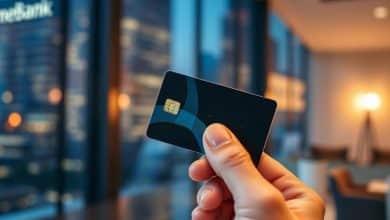Right or Wrong? Knowing When to Use Your Credit Card
Understanding credit card usage is key to good financial management. The phrase ‘Right or Wrong? Knowing When to Use Your Credit Card’ shows the balance needed. Credit cards offer benefits but can also lead to debt and bad credit if not used wisely.
It’s important to know how to use credit cards well. This knowledge can greatly improve your financial health. We will look at smart credit card use, common mistakes, and best practices.
Readers will learn when to use their credit card and when to choose cash or debit. This knowledge helps avoid debt and builds a better financial future.
The Importance of Responsible Credit Card Use
Using credit cards wisely is key to keeping your finances in check. Knowing the basics of credit cards is vital for anyone wanting to boost their credit score. This knowledge helps you manage your money better.
Understanding the Basics of Credit
Credit cards are more than just payment tools. They help build a credit history that lenders look at when you apply for loans. Good credit habits can get you lower interest rates and better loan approval chances. By using credit cards responsibly, you can create a strong credit profile. This might even get you cards with perks like cash back or travel rewards.
Benefits of Using Credit Cards Wisely
Using credit cards smartly comes with many perks. Some of these benefits include:
- Convenience: Credit cards make buying things online and in stores easy.
- Rewards: Certain cards offer big rewards, like up to 8% cash back on certain purchases.
- Consumer Protections: Many cards have fraud protection and extended warranties, giving you peace of mind.
- Building Credit: Using them responsibly can improve your credit score, opening doors to more financial opportunities.
But, misusing credit cards can lead to problems. High balances or missed payments can result in penalties and higher interest rates. By understanding how to use credit cards right, you can enjoy their benefits without financial risks.
Common Credit Card Mistakes to Avoid
Many people make common credit card mistakes that can hurt their finances. These errors can lead to financial trouble. Two big mistakes are only paying the minimum balance and using credit cards too much for everyday things.
Only Paying the Minimum Balance
Paying only the minimum balance each month is a big mistake. It might seem easy, but it can cause a lot of debt because of high interest rates. Almost half of Americans carry a credit card balance every month.
This means they pay more over time. Always paying the minimum can trap you in a cycle of debt that’s hard to get out of.
Overusing Your Credit Card for Everyday Purchases
Using credit cards too much for daily needs can also cause problems. It’s easy to spend more than you should without a budget. This can lead to using too much of your credit limit, which is bad.
Sticking to a budget helps avoid these issues. It keeps your spending in check and ensures you’re financially balanced.
Right or Wrong? Knowing When to Use Your Credit Card
Knowing when to use a credit card is key to managing money well. There are times when using a credit card can help your credit score and even earn you rewards. It’s important to think about these situations carefully.
Identifying Situations Favorable for Credit Card Use
Using a credit card in the right situations can help you in many ways. Here are some examples:
- Emergency Expenses: Unexpected costs can pop up anytime. A credit card lets you handle emergencies without messing up your budget.
- Larger Planned Purchases: For big buys like electronics or furniture, a credit card can be useful. Some cards offer interest-free periods, up to 57 days.
- Building Credit History: Using a credit card wisely and paying it off fully can improve your credit score.
Understanding the Risks of Improper Usage
But, using credit cards wrong can lead to big problems. Issues can happen if you don’t pay on time, causing:
- High-Interest Debt: Credit card rates are usually between 15% and 20%. Carrying a balance can be very costly.
- Damaging Credit Scores: Missing payments can hurt your credit score, making it harder to borrow money later.
- Fees and Penalties: Credit cards can have extra fees, like late fees and interest. These can make things worse financially.
So, it’s all about finding the right balance. Use your credit card wisely, but avoid the traps of misuse.
Smart Credit Card Usage Guidelines
Managing credit cards well is key to financial stability. To use credit cards wisely, setting a monthly budget and tracking spending are crucial steps.
Setting a Monthly Budget
Creating a monthly budget is the first step in smart credit card use. It helps you plan for necessary expenses and some fun money. By looking at your income and spending, you can decide how much to charge each month. This way, you avoid getting into debt.
- Identify sources of income.
- List fixed and variable expenses.
- Set spending limits for non-essential purchases.
Keeping Track of Spending Patterns
It’s important to keep an eye on your spending. Check your credit card transactions often to stay within your budget. Mobile apps or budgeting tools can make this easier. Regular checks help you see where you can cut back.
Smart credit card use lets you enjoy rewards, like UCount Rewards Points. Also, keep your credit utilization under 30% to keep your credit score healthy.
Best Practices for Credit Card Usage
Using credit cards wisely can greatly improve your financial health. One key strategy is to pay off your balance every month. This not only saves you from interest charges but also keeps your credit score high.
When you always pay off your credit card, you show lenders you’re reliable. This can open up more credit opportunities for you.
Paying Off Balances in Full
Paying off your balance in full helps you manage your spending better. It reduces the chance of getting into debt. And it lets you use your credit more effectively.
A good payment history is crucial, making up 35% of your credit score. Keeping your credit utilization under 30% also helps keep your credit healthy.
Using Rewards Responsibly
Using rewards wisely makes your credit card more valuable. Many cards offer cash-back or points for your purchases. When used smartly, these rewards can save you money or give you extra benefits.
But remember, using these rewards should fit your financial situation. It’s important to earn rewards without getting into debt. This way, you can enjoy the benefits without harming your finances.
Using Credit Cards for Emergency Situations
Credit cards can be a big help in unexpected money troubles. They let you get money fast when you need it. Knowing how to use credit cards wisely can help you deal with sudden expenses without stress.
The Advantages of Credit Cards in Emergencies
Credit cards offer many benefits in urgent situations:
- Quick access to funds: They let you buy what you need right away, without using your savings.
- Flexible repayment options: Many cards have plans to help you pay back over time.
- Rewards and benefits: Some cards give points or cashback, adding value to your emergency buys.
Planning Ahead for Financial Emergencies
Good financial planning means saving and using credit smartly. Saving for emergencies, aiming for three to six months’ worth, is key. This keeps you safe financially and helps with credit card use when needed. Regularly adding to your savings helps avoid too much credit card use, keeping your finances healthy.
The Impact of Credit Utilization on Your Credit Score
Knowing about credit utilization is key for a good credit score. It’s the ratio of total credit available to what you’re using. This part of your score is about 30 percent of the FICO score. Keeping it under 30 percent is good, and below 10 percent is even better.
Understanding Credit Utilization Rates
It’s easy to figure out your credit utilization. Just divide what you owe by your credit limit. For example, those with top scores use about 7 percent of their credit.
Using too much credit, over 30 percent, can hurt your score a lot. It’s a big warning sign for lenders.
But, using no credit at all is bad too. Scoring models need some activity to work right. Using credit wisely, even a little, shows you’re managing it well.
One way to manage your credit is to ask for a credit limit increase. This can help without changing how much you spend. Another option is to get a debt consolidation loan. It can make payments easier with fixed rates and amounts.
It’s also smart to watch your credit utilization trends. New scoring models like VantageScore 4.0 and FICO 10 T look at this more closely.
Credit Card Do’s and Don’ts
Managing credit cards well means knowing the right practices for a strong financial future. It’s key to understand the do’s and don’ts of credit cards. Keeping a healthy payment history is essential for effective credit card use and building a good credit score.
Maintaining a Healthy Payment History
It’s important to make payments on time to build a positive payment history. This means paying your credit card bills by the due date every month. Missing payments can harm your credit score for seven years. Sticking to a regular payment schedule helps keep your payment history healthy.
- Pay at least the minimum amount due to avoid late fees.
- Consider paying more than the minimum to reduce overall debt faster.
- Regularly check one’s credit report for accuracy and for any outstanding issues.
Keeping your credit utilization below 30% is wise. This shows lenders you’re responsible with credit. Using too much credit can raise concerns and hurt your financial health.
- Avoid maxing out credit cards, as this can severely damage credit scores.
- Do not apply for multiple credit accounts in a short time frame.
- Stay aware of interest rates; high rates can lead to increased debt if not managed wisely.
By following these credit card do’s and don’ts, you can start a positive credit journey. This journey opens doors to better financial opportunities like loans and lower interest rates. It also improves your overall creditworthiness.
Conclusion
Understanding credit cards is key to good financial health. Using them wisely can boost your credit score and make money management easier. For example, many think carrying a balance helps their score. But, keeping your credit use under 30% is much better.
This mistake can lead to more debt and extra interest. It’s important to know the right way to use credit cards.
Following the tips in this article can improve your credit health. Making payments on time, using rewards wisely, and avoiding cash advances are good steps. These actions let you enjoy credit card benefits without the downsides.
It’s also vital to stay alert to monthly bills. Almost 72% of cardholders have faced fraud at some point. Being proactive and checking your bills regularly is essential.
The goal is to manage credit responsibly. This means planning for emergencies, budgeting well, and knowing about fees and terms. By doing this, you can make smart choices that help your financial stability.
By using the strategies shared, you can handle credit cards well. This ensures your path to success stays clear and reachable.
FAQ
What is the best way to use a credit card wisely?
How can I avoid common credit card mistakes?
What should I consider before using my credit card for a purchase?
How does credit utilization affect my credit score?
Are there advantages to using credit cards for emergencies?
What are some best practices for managing credit card rewards?
How can I maintain a healthy credit score?
What are the fundamental concepts of credit I should know?
Published on: 27 de August de 2024

Bakari Romano
Bakari Romano is a finance and investment expert with a strong background in administration. As a dedicated professional, Bakari is passionate about sharing his knowledge to empower individuals in managing their finances effectively. Driven by this mission, he founded FinancasPro.com, where he provides insightful and practical advice to help people make informed financial decisions. Through his work on the site, Bakari continues to make finance accessible and understandable, bridging the gap between expert knowledge and everyday financial needs.






